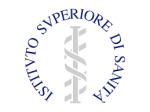Molecular characterization of spa type t127, sequence type 1 methicillin-resistant Staphylococcus aureus from pigs
Artículo de investigación publicado en The Journal of Antimicrobial Chemotherapy
1 de junio de 2011
Objectives The aim of this study was to provide molecular characterization of methicillin-resistant Staphylococcus aureus (MRSA) spa type t127, sequence type (ST) 1 isolates, detected in a European baseline survey in holdings of breeding pigs, to determine phenotypic and genotypic drug resistance and to compare the results with those obtained from a collection of t127, ST1 MRSA and methicillin-susceptible S. aureus (MSSA) clinical isolates. Methods Twenty-four t127, ST1 MRSA from dust sampled in different breeding holdings in Italy, Spain and Cyprus were studied, along with 2 t127, ST1 MRSA from fattening pigs and 11 human t127, ST1 MRSA and MSSA. Genotyping was performed using multilocus sequence typing (MLST), spa typing and PFGE. SCCmec elements were characterized by multiplex-PCR and resistance and pathogenicity genes by PCR and microarray. Results PFGE patterns separated a porcine cluster (PC) from a human cluster (HC), with 75% similarity. The PC carried SCCmec cassette type V, while all isolates of the HC carried SCCmec cassette type IVa. Kanamycin resistance mediated by aadD, fluoroquinolone and erm(A)-mediated macrolide resistance and the absence of the sakA gene were features of the PC only. All isolates of both clusters were positive for LukE-LukD and LuF-LukS-HlgA leukotoxin genes and one human MSSA harboured Panton-Valentine leucocidin genes. Conclusions Despite differences in the host-specific genetic features, the possibility of PC transmission to humans cannot be excluded. MRSA spa type t127, ST1 from pigs possesses several virulence and resistance genes towards major classes of antimicrobials and may represent a serious therapeutic challenge in case of invasive infections in humans
Franco A., Hasman H., Iurescia M., Lorenzetti R., Stegger M., Pantosti A., Feltrin F., Ianzano A., Porrero MC., Liapi M. y Battisti A.
 | Servicio de Zoonosis de Transmisión Alimentaria y Resistencia a Antimicrobianos (ZTA). Centro de Vigilancia Sanitaria Veterinaria (VISAVET). Universidad Complutense (UCM). |
| Istituto Zooprofilattico Sperimentale delle Regioni Lazio e Toscana (IZSLT). | |
| Danish Institute for Food and Veterinary Research (DFVF). | |
 | Statens Serum Institut (SSI). |
 | Istituto Superiore di Sanità. |
| Bacteriology—Serology Laboratory (BSL). Veterinary Services. Ministry of Agriculture, Natural Resources and Environment. | |
